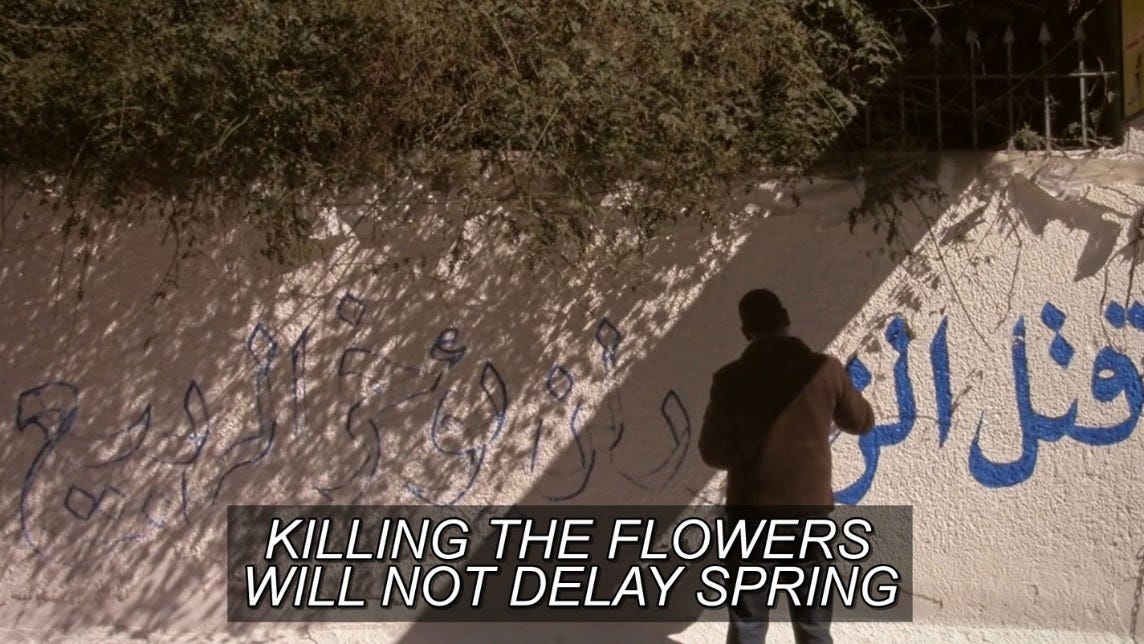
it’s hard to know these days if i am depressed or depression is me. As in, what would happen if i stopped waiting for it to leave? i know we’re not supposed to allow ourselves to be defined by our “disorders” but what if it’s cozy? What if it’s less a disorder and more a revolutionary praxis? Can it be my identity then? Pweeze??
Since my last newsletter and sort of accidental resulting dialogue about hope and hopelessness, i’ve been thinking a lot about it. i didn’t realise immediately but this paragraph, about remembering the value of hopelessness, tacked onto an essay about grief, was the beginning of some deep personal understanding around my own depression and what happens when hope doesn’t protect you. Readers of this newsletter will know i’m into feeling the feelings and inherent in that is an immense rejection of toxic positivity or projections onto others in the vein of aren’t they strong, aren’t they resilient, as if you can’t be both depressed and strong, hopeless and resilient. I root for the underdogs but especially the sad ones. The ones who didn’t manage to spiritually bypass their way out of despair.
I have always (or since my first depression) been a deep believer that depressed people are the ones brave enough to pay attention. wait omg is depression the inverse of ADD?? as in I Am Actually Paying Attention and it’s Quite BAD disorder?! I feel like some people find the ‘mentally ill people are better than everyone else’ take problematic but i can’t remember why and i also don’t care lol.
A group of us are GLITCHING in this hellworld the horrors of which there are truly no sufficient words to describe and we are the problem? I THINK NOT! We are the litmus test for a soul, sir! what if the island in ur kitchen is in fact the glitch?!
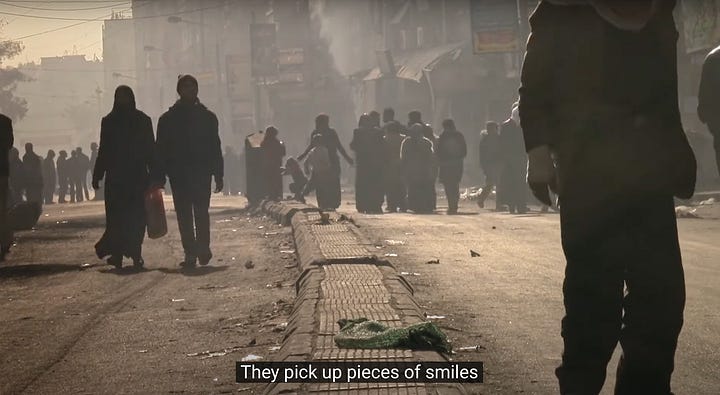
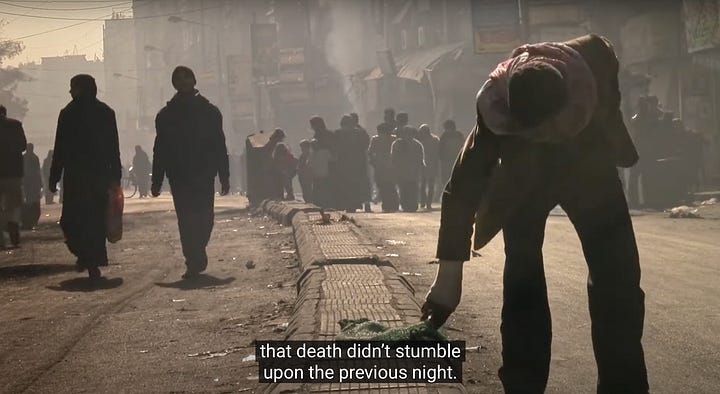
This horrific time… it’s been confusing, frustrating, galvanizing, depressing all at once. It has been curious, in a way, to see glimmers of my depression reflected in the spirit of those around me in new ways. validating? to witness a mass crisis of safety and identity among my peers and strangers on the internet, shifting towards an overarching acknowledgement of how bad everything really is and the ways in which we’re all suffering and all complicit and just how much grief abounds because for whatever miserable reason that has been my baseline for however long…
has life lost colour? you’re having trouble sleeping? oh, your boss is a zionist? I don’t mean to snark, because that would be unattractive so i’m literally not snarking but i have caught myself wondering how everyone was coping before october 7th? Making a living, yes, i get it, and i rate it!! but I’ve been too unwell to go into the office since 1989 baybee!!! To be fair to me i gave it a good go. I was a documentary producer at the BBC by 22. But i just felt strongly in my spirit that i would not be able to pretend that these old white people were the bastion of knowledge, wisdom or ‘impartiality’ and everything felt, how do i say, icky, so i gtfo. sometimes i think about regretting that sort of behaviour but i just can’t!!
coz even if i wanted to, I really actually don’t have that certain…. hee hee haa haa palatability needed to make it in the office or the ‘____ industry’, and i also sleep in every single day, and that’s on my good friend and torturer, depression… the harbinger of such noble truth (idk something feels reeaaally wrong better take a nap) and cruel, cruel lies (also you are a failure and should probably ki-)
how did we learn to make ourselves the bombs?
are those most sensitive to suffering also most sensitive to believing - speaking of propaganda, one of the most successful propaganda campaigns of hetero-patriarchal-capitalism - that we are somehow to blame?
i have been wondering what depression feels like in palestine, what lies it whispers to people there, what truth it makes light of. if it’s greeted with love or shame or acceptance, that this is life, this is war, colonialism, occupation? What is its name?
This time last year, a joint report by the Palestinian Central Bureau of Statistics (PCBS) and the World Bank was published on the mental health of people in West Bank and Gaza. I personally can’t with stats but for those who can, the report found that “more than half of the adult population in the West Bank and Gaza screen positive for depression. In Gaza specifically, the rate climbs to 71%.” The suggestions offered by the report, such as, “Policymakers can improve the effectiveness of their aid by targeting households that are both poorer and have high exposure to violence” and “we see the need for interventions that mitigate the consequences of trauma exposure, as they encourage healthy participation in social and economic life” acknowledge the traumatized but not the traumatizer. They were never enough, but reading them now feels almost bizarre.
The report is important but reflects the work of the medical industrial complex that we know so well - same shit different geo-political plain - make them function so they can participate in capitalism, acknowledge the pain but not the very clear, barbaric and preventable cause of it.
What does economic life look like in a place that can be razed to the ground in a month? What does mental health care sound like without freedom of movement? What does mitigating the consequences of trauma exposure feel like when every facet of existence is traumatic? What enables you to offer safety to another when you can’t remember what safety feels like yourself? What is post traumatic stress disorder without the post?
The only acceptable suggestion is free palestine, is land back, is abolition now.
There has been a sharp rise in suicide in Gaza in recent years and despite the social stigma around it, the stories of those lost and nearly lost are being told. I was surprised to find this UK Channel 4 report on the crisis from 5 years ago wherein one of the young people interviewed explains that for people in Gaza, there is no difference between life and death because they are already dead.
Dr. Samah Jabr, psychiatrist, author of the book Derrière les fronts (“Behind the Frontlines”) on mental health in occupied Palestine and Chair of the Mental Health Unit at the Palestinian Ministry of Health is incredible and i’m going to quote her speaking on why Western-centric understandings of mental health shouldn’t be applied uncritically to the lived experience of those in Palestine.
“What is sick, the context or the person? In Palestine, we see many people whose symptoms—unusual emotional reaction or behaviors—are a normal reaction to a pathogenic context. There are many people in Palestine who are suffering. But Western-developed tools for measuring depression, such as the Beck inventory, do not tend to distinguish between justified misery and clinical depression.
We describe our psychological experience in terms that we hope to be understood in the West, so we talk a lot about PTSD, but I see patients with PTSD after a car accident. Not after imprisonment, not after bombardment or being labeled as a person against the law and having a relationship with prison like a revolving door. The effect is more profound. It changes the personality, it changes the belief system, and it doesn’t look like PTSD.
I have made my own measures of what constitutes good mental health in Palestine: To be able to have critical thinking and to maintain your capacity to empathize. It’s important to develop your own mental health standards. It’s not just the definition of the World Health Organization.”
Two days ago Dr. Jabr published a letter in the Lancet journal of Psychiatry named Palestine meeting Gaza's mental health crisis in response to a letter that had been published about Israel’s mental health crisis following Oct 7th. Here are some quotes from that for some understanding of what mental health services are looking like on the ground in Gaza right now and what is needed:
The once-functional mental health system has thus in the past weeks experienced a progressive shrinking of services to the degree that of six public community mental health centres, the lone remaining centre in the south has now closed and has run out of medications. The inpatient psychiatric hospital has been shelled since the first week of the assault and is no longer functioning. Teletherapy cannot be implemented because of the lack of internet connection. The current situation is one of total collapse of mental health services.
Gaza had a functional and effective mental health system despite its history of meagre governmental financial support and investment in staff members; mental health services had been integrated in schools and in primary health care. Hundreds of doctors and nurses were trained to provide psychological first aid. But Gaza’s professional staff, accustomed to the constricted circumstances of the longstanding siege, have now experienced far deeper trauma.
Therapists often possess nothing but the clothes on their backs and must frequently relocate from one house to another—the loss of spouses, children, and other family members has touched almost everyone. We must face the reality that we will be unable to rely on local capacity- building to fulfil the psychological needs of the community in Gaza. The famous sumud or steadfastness of the Palestinian people has not forsaken us, but it is possible to overemphasise it and to glorify our capacity to withstand any amount of loss.
As to therapeutic approaches, we observe that medication is frequently offered by well meaning international donors, but mass medication is not the answer to war. Similarly, the notion of self-care, oft-mentioned by those in Europe, North America, and other high-income regions, tends to presume an individualised perspective on suffering. By contrast, we believe that forms of care that emphasise the collective and the communal are most appropriate to the challenges in Gaza. Group approaches to recovery are needed, such as leading children in expressive play, art, music, or drama and bringing together adults who share a common focus, such as journalists, lawyers, or rescue workers who have toiled amidst the rubble.
We must emphasise that the overwhelming need now is not mental health but ceasefire.
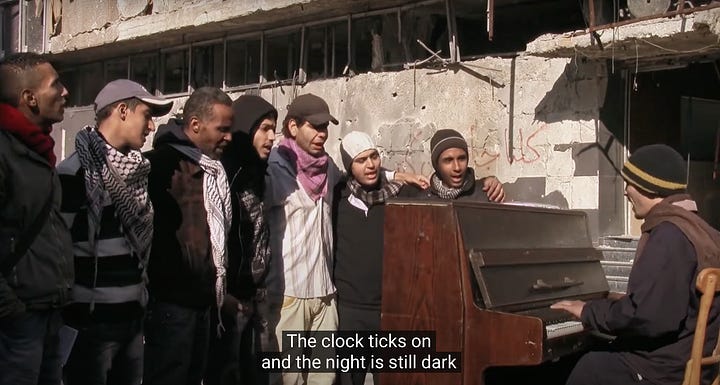
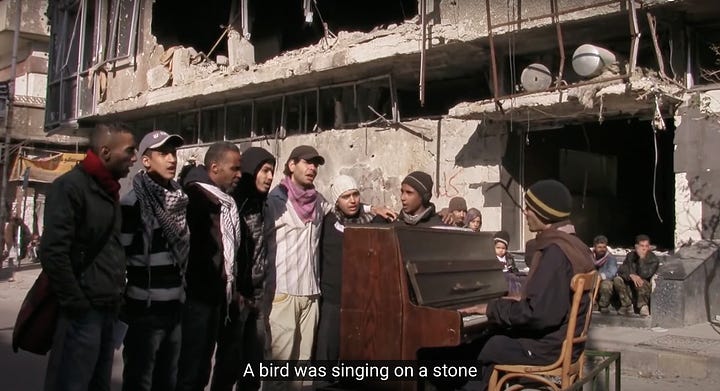
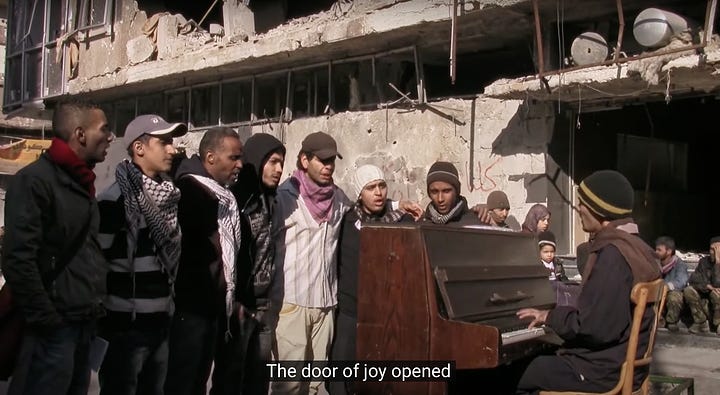
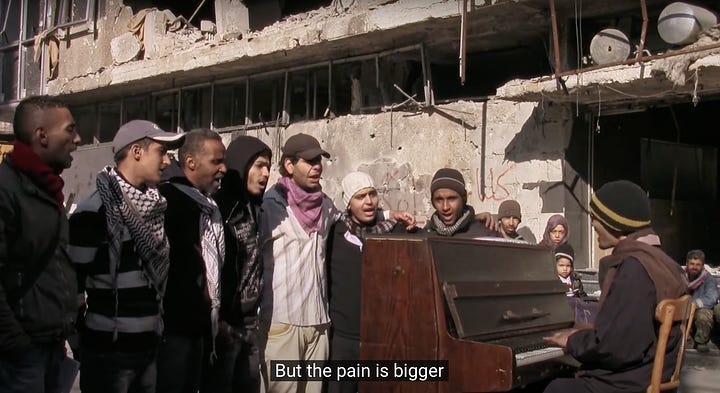
One thing the reports and accounts from Gaza agree on is that children are the hardest hit across the board in terms of mental health. in 2022, Save The Children published a big report called TRAPPED on children’s psychosocial wellbeing in Gaza, showing devastating results. And what is there for me to say about that now other than shame… every day I wish deeply that they grow to experience ease and delight somehow. this world is unfathomable.
While i debate shaving my eyebrows off each week, my friends are actually starting to create human babies. overall I am enjoying this because i love babies, i LOVE buying those tiny second hand crocheted hand knitted jumpers, i love spending time with people in the gruesome liminal twilight of post-birth and pretending i know what they need but really just kind of gawking.
I recently reconnected with an ex-friend who used to be a bit racist and tbd if she still is but in the meantime her baby is SO cute. in hearing her reports from the first year of motherhood, i feel so passionate about how much young people know, before they leave the womb, even. How so many of our societal systems of so-called knowledge accumulation and so-called care and socialisation are actually mechanisms of control and of stripping away of a much more profound sense of knowing to be replaced with obedience, doubt and the cultural wish fulfilment of whoever.
I notice that in recent months, as i have navigated feeling lost, I find myself reaching back to my child self for guidance. Everything i wanted, everything i loved. it’s all there and it’s much the same. And for me, in this, there is hope. i pray that as we collectively watch cities be levelled, they may be returned to an embryonic state of power that will one day grow stronger than ever before. And as we collectively witness the brutalization of children, I pray that their inherent ancestral wisdom and precious sadness will one day alchemise to give them the key to the world. I pray that one day no black or brown baby will have ever seen too much.
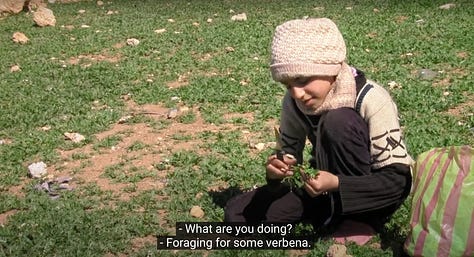
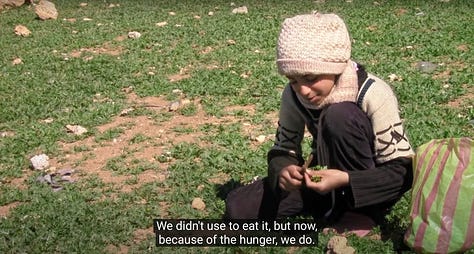
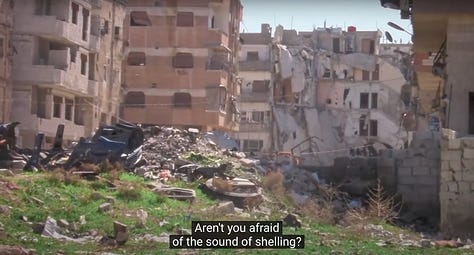
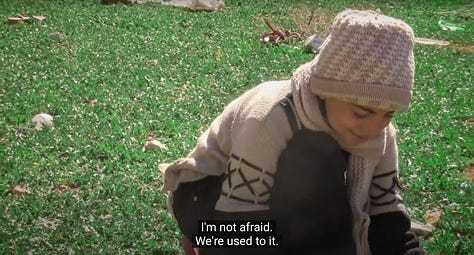
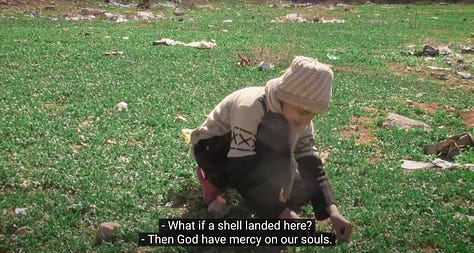
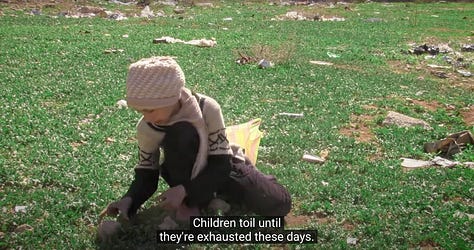
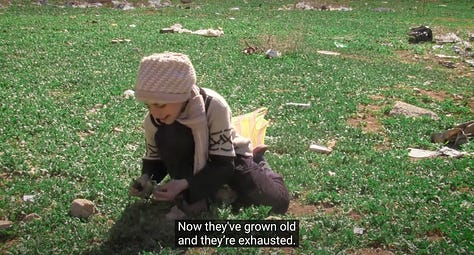
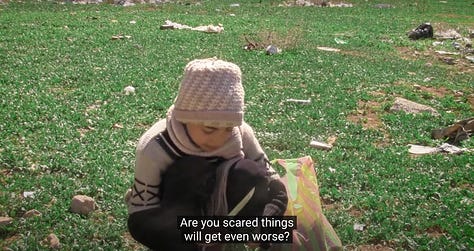
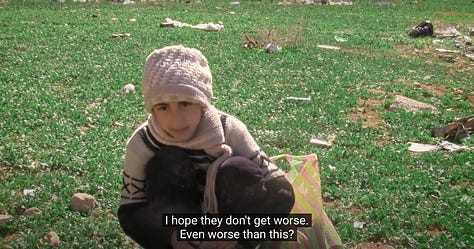
any money made from my newsletter this month will be donated directly to Dr. Samah Jabr










You always bring the salve somehow
Thank you. Each of your posts feels like a gift. I am so grateful for your writing.
Each time I read one of your posts, I come out of it feeling a little more peace. Feeling a little more healed. I love how you write. I love what you share. I love that it is a bit messy and chaotic and sometimes I come back to a post I've read already but I can't remember for sure if I've already read it or not (it's partially because of my ADHD trash working memory, and not because your writing is in any way forgettable, because that is most definitely not the case). And sometimes halfway through reading, there's a specific little expression or image or feeling that reminds me that I did, in fact, already read this. But then I keep reading anyway, because your writing always seems to have something new to offer.
I think I don't remember exactly if I've read something of yours already or not, because there is no easy way to summarize what each of your posts is offering. Yes, there might be a central idea or image that is particularly memorable (the magnolia in your essay on abscission, which btw remains my favorite piece of writing I've read this whole year), but your essays / sharings always do more than, like, make one point that is easy to summarize and digest. Your writing meanders and winds and unwinds, opens up on little vistas of insight, detours around little nuggets of seemingly mundane things that are of absolute beauty, and connects all sorts of different things together in really intricate and beautiful ways, while at the same time, your essays taken together seem to come back, again and again, to similar / related topics, circling through and around them in a different ways each time.
So maybe that combination of things is why I sometimes don't remember what I have and haven't yet read from you. Because reading your posts is also a sort of journey, a sort of letting my own mind meander alongside yours. And maybe I'm more invested in how each post makes me feel, or, like, the experience of reading each post, than I am invested in trying to boil down the post to a main idea (or a single idea) that I can more easily hold on to, and therefore sort of remember.
I guess I would say that your writing is of the kind that cannot be summarized or explained easily, and that, if you want to know what it is about, then the easiest thing to do is to actually read the whole thing, to actually experience it. And while publishing houses and content farms hate that (no easy main point, no easy tag line, please what box can we fit this into we don't know how to handle writing that allows itself to breath and expand and seemingly get lost along the way except that in fact the detour was just as essential as any part of the journey), I think that is exactly what makes your writing that much more wonderful. Your content and form are melded together so tightly that they cannot be pulled apart. And since I am a sucker for medium specificity and for work that finds form that is singularly specific to the piece in question, obviously I love your pieces.
So thank you, again, for writing and posting these.